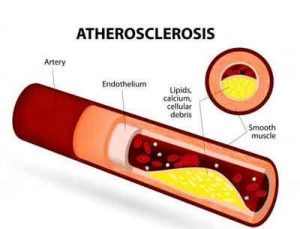- Home
- Editorial
- News
- Practice Guidelines
- Anesthesiology Guidelines
- Cancer Guidelines
- Cardiac Sciences Guidelines
- Critical Care Guidelines
- Dentistry Guidelines
- Dermatology Guidelines
- Diabetes and Endo Guidelines
- Diagnostics Guidelines
- ENT Guidelines
- Featured Practice Guidelines
- Gastroenterology Guidelines
- Geriatrics Guidelines
- Medicine Guidelines
- Nephrology Guidelines
- Neurosciences Guidelines
- Obs and Gynae Guidelines
- Ophthalmology Guidelines
- Orthopaedics Guidelines
- Paediatrics Guidelines
- Psychiatry Guidelines
- Pulmonology Guidelines
- Radiology Guidelines
- Surgery Guidelines
- Urology Guidelines
Canakinumab reduces gout flares by more than half in atherosclerosis19

Canakinumab significantly reduced the rate of gout by more than half among patients with atherosclerosis, according to the findings of the research presented at Annual European Congress of Rheumatology (EULAR 2018).
Canakinumab is a monoclonal antibody that blocks an inflammatory pathway mediated by interleukin-1β. It is licensed for the treatment of several rare auto-inflammatory disorders although it can also be used to treat flares in certain patients with gout who have contraindications to standard therapies.
The study was conducted to test the cardiovascular benefits of canakinumab and, by extension, the so-called inflammation hypothesis of cardiovascular disease. However, the data included records of gout diagnoses and attacks, forming a basis for the current secondary analysis.
The report generated at EULAR is a secondary analysis of the CANTOS (Canakinumab Anti-inflammatory Thrombosis Outcomes Study) trial which included 10,061 patients with stable atherosclerosis (prior heart attack) and a hsCRP?2mg/L which indicates an increased risk of CV disease and studied the impact of canakinumab in the secondary prevention of cardiovascular (CV) events.
The analysis took place by dividing the participants into three groups based on their serum urate level at baseline; low (<6.9mg/dl), medium (6.9-8.9mg/dl), and high (>9.0 mg/dL). Patients were randomly assigned to receive placebo or one of three doses of canakinumab (50mg, 150mg, or 300mg) once every three months. The groups were well balanced with respect to their baseline characteristics with a median follow-up time of 3.7 years. Median age was 61 years. Serum urate and hsCRP were tested at baseline and every three months for the first year and then annually.
The study found that Canakinumab (pooled doses) significantly reduced the rate of flares of gout by more than half compared to placebo, across all baseline serum urate groups. The hazard ratio was 0.40, 0.48 and 0.45 for the low, medium and high baseline serum urate groups respectively. The serum urate levels were not affected by canakinumab over time, although it did reduce high sensitivity C-reactive protein (hsCRP).
By studying the rates of flares of gout and major CV events between the baseline serum urate groups, investigators demonstrated a correlation confirming it as a risk marker for both these conditions. Rates per 100-person-years for the low, medium and high baseline serum urate groups were 0.28, 1.36, and 5.94 respectively for gout-flares and 4.1, 5.3, 5.6 respectively for major adverse CV events.
"Our results demonstrate a striking effect of canakinumab on reducing the risk of gout attacks in atherosclerosis patients," said Daniel Solomon, Professor of Medicine, Harvard Medical School and Brigham and Women's Hospital. "Moreover, these data illustrate serum urate as a risk marker for both gout and cardiovascular events, though canakinumab has no effect on serum urate levels due to its mechanism of action."

Disclaimer: This site is primarily intended for healthcare professionals. Any content/information on this website does not replace the advice of medical and/or health professionals and should not be construed as medical/diagnostic advice/endorsement or prescription. Use of this site is subject to our terms of use, privacy policy, advertisement policy. © 2020 Minerva Medical Treatment Pvt Ltd